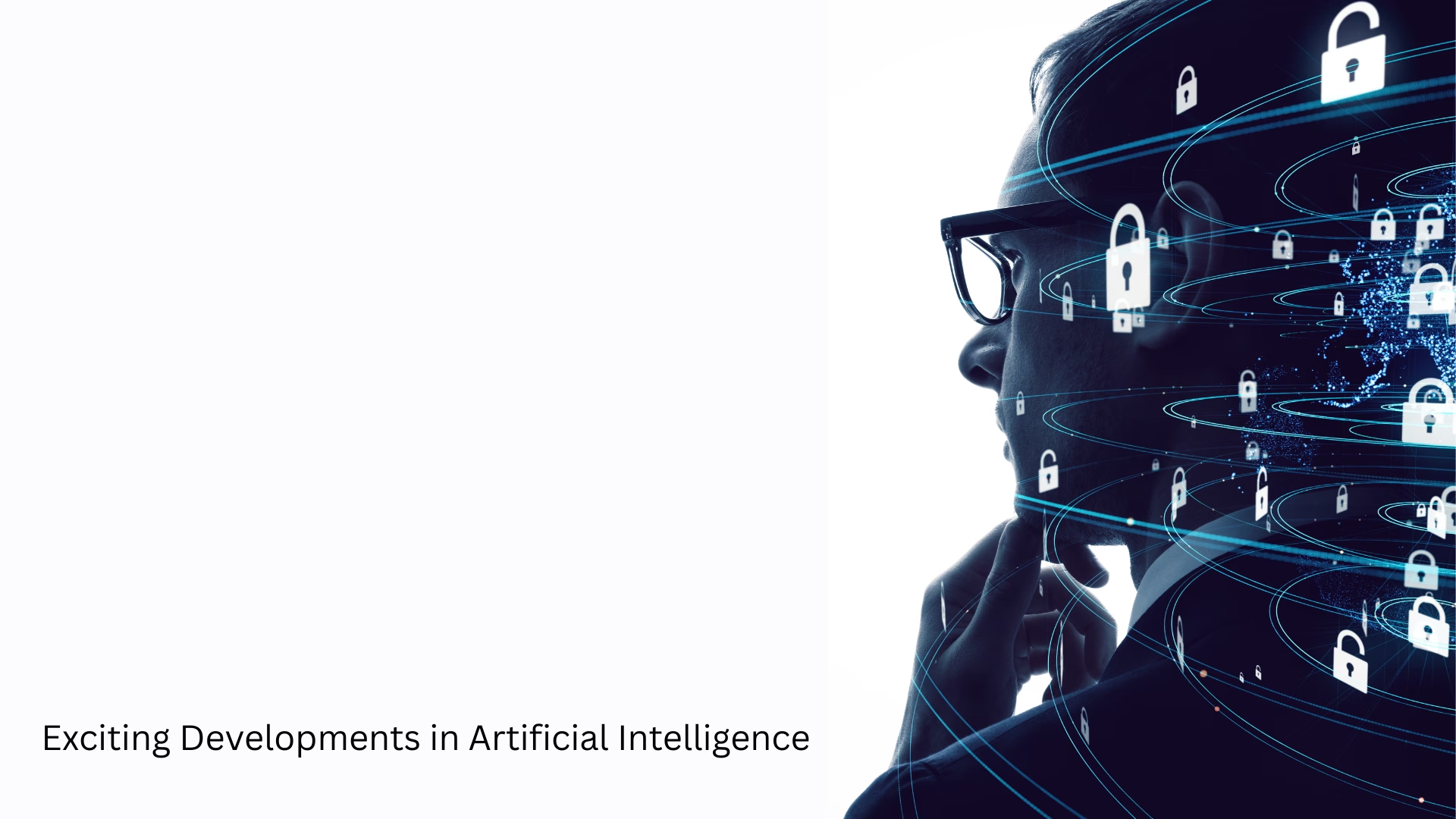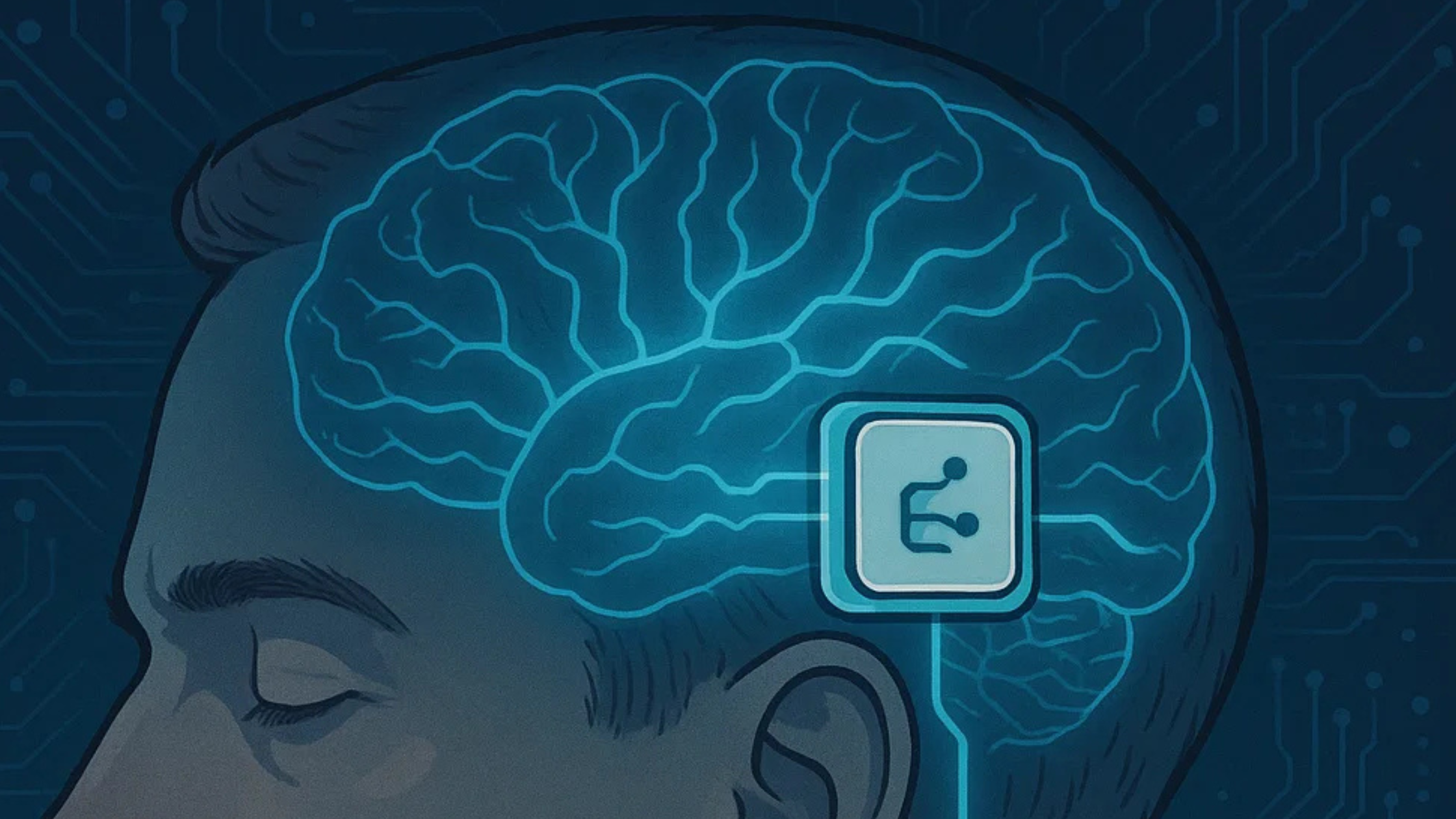There have been few advancements in Autonomous AI agents in artificial intelligence. These agents are improving from their older models, which require constant human supervision. They are now designed to operate independently and optimise workflows without manual intervention.
They now make decisions and learn from their surroundings. Their capacity to perform tasks with minimal human supervision makes them useful in various fields, including enterprise automation, scientific research, cybersecurity, and robotics.
What Defines an Autonomous AI Agent?
An autonomous AI agent analyses data and makes informed decisions, taking actions based on defined goals. Conventional AI systems require direct human input, while autonomous agents learn and adapt through these key characteristics.
Self-Learning Abilities: Many autonomous AI agents employ reinforcement learning, which allows them to continuously improve by interacting with their environment. They refine their decision-making processes through trial and error.
Adaptive Behaviour: These new AI agents adjust their strategies to tackle problems dynamically. Whether managing unpredictable situations in cybersecurity or automating logistics, they modify their responses based on real-time data.
Continuous Operation: Rule-based automation adheres to strict pre-programmed instructions. On the other hand, Autonomous systems can operate in open-ended environments and respond to change independently.
Multi-Agent Systems: Some AI agents collaborate to form intelligent networks coordinating complex tasks. This approach, known as swarm intelligence, enhances problem-solving efficiency.
Core Technologies Driving Autonomous AI Agents The emergence of autonomous AI agents is powered by several advanced technologies:
Reinforcement Learning (RL) enables agents to learn new techniques and strategies by interacting with their environment and receiving feedback on their actions. Self-supervised learning. AI agents can identify patterns from unlabeled data and modify their future responses accordingly. These abilities enhance their capabilities without explicit instruction.
Large Language Models (LLMs).
These advanced AI models are designed to process natural language, allowing autonomous agents to interact intelligently with users. Some autonomous agents combine deep learning with rule-based reasoning, Symbolic AI, and Decision Trees to facilitate strategic planning.
Autonomous agents can collaborate in Multi-Agent Coordination, which can be optimised for complex systems across various domains, such as supply chains, gaming, and finance.
How are they different from basic AI models?
They are typically task-specific and often require human intervention for updates in models, datasets and improvements in their strategies. Autonomous AI agents evolve independently, adapting to new environments and learning from tasks without direct human supervision.
However, it is essential to note that human oversight is still a crucial part of the development and deployment of these Autonomous AI agents. To ensure that they operate within ethical and legal boundaries, they still need human oversight, at least for now.
Why Autonomous AI Matters?
Adopting autonomous AI agents is not just a trend; it’s a transformation. From AI-driven cybersecurity to self-organising business processes, these systems are not just increasing efficiency but also changing the way we think about AI.
As AI research advances further, when agents are capable of self-directed reasoning, they could speed up scientific discoveries in many fields of science. These agents are opening up new possibilities for us.
Autonomous AI agents are constantly evolving over time. They have rapidly progressed from simple rule-based systems to self-learning. These adaptive entities are now capable of complex decision-making.
Over the years, advancements in machine learning, reinforcement learning and multi-agent collaboration have propelled AI agents toward autonomy. Industry is very excited about companies and research institutions pushing the boundaries of autonomous systems.
Early Developments: From Rule-Based Systems to Intelligent Agents
The concept of autonomous AI agents can be traced back to early artificial intelligence research, where rule-based systems performed repetitive tasks without human intervention. Early AI models followed strict programming instructions and lacked adaptability.
Key Milestones in AI Autonomy
- Expert Systems (1970s–1990s): Early AI programs relied on predefined rules and structured decision trees. While it is helpful for medical diagnosis and business automation. They lacked self-learning capabilities.
- Machine Learning Revolution (1990s–2000s): The shift toward statistical learning methods enabled AI models to recognise patterns from unlabeled data to improve performance through experience.
- Profound Learning Breakthroughs (2010s): AI systems using neural networks developed sophisticated reasoning abilities, powering applications such as facial recognition and autonomous vehicles.
- Reinforcement Learning and Self-Supervised AI (2020s–Present): Autonomous agents now learn from their environment, optimise strategies and make independent decisions.
Modern Advancements in Autonomous AI
In recent years, we have seen a surge in AI innovation, with companies and research institutions pushing the boundaries of autonomous systems.
IBM’s Approach
IBM has been leading AI-driven automation, focusing on enterprise applications for workflow optimisation. IBM’s AI agents leverage deep reinforcement learning and hybrid cloud computing to streamline business operations.
Key contributions from IBM include:
- AI-powered decision engines for enterprise automation.
- Cognitive agents are managing real-time risk.
- AI-enhanced cybersecurity tools that detect anomalies and threats autonomously.
Microsoft’s Copilot Studio
Microsoft has recently integrated new autonomous AI capabilities into Copilot Studio, which allows businesses to scale operations efficiently and effectively.
Their latest developments include:
- AI agents that assist with customer interactions, fraud detection, and workflow automation.
- Multi-agent collaboration frameworks that enhance adaptability and coordination.
- AI-powered knowledge synthesis is used to optimise quick decision-making in a dynamic environment.
AI Colonies and Self-Motivated Agents.
Researchers are exploring AI colonies beyond individual autonomous agents. This approach involves collaborating with Multiple agents to optimise complex tasks. It mimics biological swarm intelligence and has the potential to revolutionise many fields, such as logistics, robotics, and AI-powered scientific discovery.
Recent advancements in AI colonies are self-organising systems that adapt to dynamic environments. AI-driven collective intelligence can enhance problem-solving strategies and multi-agent coordination in cybersecurity, finance and healthcare.
Scientific Research and AI Autonomous AI agents are increasingly being used in scientific research. They autonomously generate hypotheses, design experiments, and analyse data.
Notable contributions include:
- AI-driven molecular synthesis that accelerates drug discovery.
- AI-powered robotics that assists in space exploration.
- Autonomous AI labs that generate new theories in fields like physics and biology.
Future Directions: What’s Next for Autonomous AI? The future of autonomous AI looks promising, with potential advancements in Self-replicating AI that is capable of independent learning and improvement over time.
AI-driven sustainability initiatives that optimise renewable energy solutions. Hyper-personalised AI assistants could reshape the healthcare, finance and entertainment industries.
The advancement of autonomous AI agents is modernising industries. Scientists are experiencing groundbreaking innovations that push the limits of machine learning, self-learning systems and multi-agent collaboration. Research institutions collaborating with tech companies are continually enhancing AI capabilities.
These new capacities enable agents to become more adaptable to their surroundings, making them efficient and independent decision-makers. Breakthroughs in reinforcement learning lead to AI-driven scientific discoveries. Innovations in autonomous AI are laying the initial work for the next wave of technological evolution.
Advancements in Self-Learning AI
Autonomous AI agents rely on self-learning mechanisms that allow agents to improve based on their interactions with the environment. Some of the most transformative research areas include:
- Reinforcement Learning (RL) Optimisation
- Use of deep reinforcement learning to navigate complex environments without explicit human guidance.
- Hierarchical reinforcement learning enables AI to break tasks into sub-goals, enhancing problem-solving efficiency.
- Research institutions like DeepMind and OpenAI have pioneered algorithms that improve an agent’s learning ability from sparse rewards.
- Self-Supervised Learning & Continual Learning
- Traditional AI models often require vast amounts of labelled data. Self-supervised learning (SSL) eliminates this dependency by allowing agents to learn from unstructured information.
- Continual learning ensures that AI models retain and apply past knowledge, preventing “catastrophic forgetting.”
- AI-driven memory architectures enable agents to recall and integrate past experiences into real-time decision-making.
AI-Driven Scientific Discovery and Autonomous Research
One of the most exciting frontiers in autonomous AI is its application in scientific research, where AI-driven laboratories and agents autonomously generate hypotheses, conduct experiments and analyse results.
- Autonomous Hypothesis Generation
- Powered by symbolic reasoning and deep learning, AI agents can autonomously formulate scientific hypotheses, accelerating research progress.
- Companies like the Pacific Northwest National Laboratory (PNNL) are exploring AI-driven discovery to optimise material design and chemical synthesis.
- AI-Powered Laboratories.
- Autonomous laboratories utilise robotic AI systems to conduct experiments without human intervention.
- AI-driven materials discovery has led to battery technology, pharmaceuticals, and energy-efficient components breakthroughs.
- Research projects at institutions like MIT and Stanford focus on AI systems that independently modify research protocols based on emerging results.
AI in Space and Environmental Science
NASA utilises autonomous AI agents in space missions for navigation, data processing, and anomaly detection tasks. AI-driven climate models can now predict weather patterns and environmental changes with unprecedented accuracy.
Multi-Agent Systems and AI Colonies
The development of autonomous AI is evolving from individual agents to multiple agents that collaborate dynamically to make collective intelligence systems.
Swarm Intelligence in AI Colonies
Drawing inspiration from biological models, swarm intelligence enables groups of AI agents to collaborate and optimise tasks. This approach is beneficial in logistics, defence strategies and complex problem-solving.
Decentralised Multi-Agent Architectures
Companies like Microsoft AutoGEN and IBM are creating multi-agent AI frameworks to enhance collaboration between AI models in various business applications. AI agents now operate in decentralised environments. Executing smart contract transactions and performing blockchain-related functions.
AI Agents in Cybersecurity
Autonomous AI agents are focused on threat detection, identifying cybersecurity risks and neutralising threats proactively. AI-driven fraud prevention systems will continually evolve to detect and counter financial fraud schemes, learning from previous threats to determine the next possible risk to the system.
Autonomous AI research faces challenges related to its transparency, ethics and scalability despite its significant advancements.
Now, the Key Challenges are:
Ongoing refinement is needed to ensure bias and fairness in AI decision-making.
There are concerns regarding the self-sufficiency of AI systems and the potential for unintended consequences.
These remain essential for AI acceptance in high-stakes applications to maintain explainability and trust.
Demand for Future Innovations 2025
Development of autonomous AI-driven entrepreneurship agents, where AI agents can already independently manage most business functions. AI-powered scientific breakthroughs could lead to remarkable discoveries in medicine, physics, etc.
Creation of self-evolving AI models that can autonomously improve their own structures. Highlights of latest advancements and research in autonomous AI innovation.
Applications Across Industries:
Autonomous AI agents are transforming industries by enhancing efficiency, scalability and decision-making. From enterprise automation to decentralised gaming, these agents optimise complex systems and streamline tasks without continuous human oversight. An in-depth look at how autonomous AI advances in six key sectors.
Enterprise and Workflow Automation:
Autonomous AI is revolutionising business operations by automating repetitive tasks, analysing vast datasets, and making intelligent decisions to optimise workflows.
Key Contributions of AI Agents in Enterprise:
- IBM’s AI-Powered Business Automation: IBM’s autonomous agents integrate with cloud-based infrastructure to manage enterprise workflows, improving efficiency in risk management and predictive analytics.
- Microsoft Copilot Studio: Microsoft’s AI-driven automation tools allow enterprises to scale their customer service, HR management, and IT support operations through self-learning AI agents that optimise processes based on real-time data.
AI-Driven Decision-making Engines: Autonomous agents analyse market trends, suggest operational improvements and anticipate supply chain disruptions before they occur.
Multi-Agent Coordination in Project Management:
AI systems can coordinate multiple processes simultaneously, reducing bottlenecks and enhancing productivity in scientific research. AI-driven systems contribute to scientific discovery by significantly automating research processes, generating hypotheses, and conducting experiments.
Breakthroughs in AI-Powered Scientific Discovery:
- PNNL’s Autonomous AI Research: The Pacific Northwest National Laboratory (PNNL) is developing AI systems that autonomously explore scientific problems by analysing massive datasets and proposing new chemistry and environmental science hypotheses.
- AI Agents for Molecular Synthesis: AI-driven laboratories autonomously design and test new chemical compounds, accelerating drug discovery and materials science advancements.
- Self-Learning AI in Physics and Biology: AI agents independently develop theories by analysing experimental data, thereby refining scientific methods in ways previously deemed impossible.
Autonomous AI is set to refine how researchers approach discovery, significantly reducing the time required to solve complex problems.
Autonomous Threat Detection and Cybersecurity Response. As cyber threats evolve rapidly, AI agents play a critical role in detecting and neutralising security risks in real-time.
AI’s Role in Cybersecurity Defence
- Jitterbit’s AI-Driven Security Agents: These intelligent systems autonomously identify vulnerabilities, predict cyberattacks, and strengthen defences against threats without direct human oversight.
- Self-Adapting Threat Detection: AI continuously learns from new attacks and evolves security measures to counteract emerging threats.
- Autonomous AI Firewalls and Penetration Testing: AI agents can autonomously conduct penetration testing and adapt firewall strategies to enhance security.
Through these applications, autonomous AI is positioned to bolster productivity and security across various sectors, paving the way for increased efficiency and innovation.
Future Trends and Predictions in Autonomous AI
The next evolution of autonomous AI agents will go beyond simple automation, enabling AI to function as collaborative research partners, intelligent swarms, and systems focused on sustainability.
AI Agents Evolving into Fully Autonomous Research Collaborators AI-driven research assistants are gradually moving towards full autonomy, capable of performing advanced data analysis and generating hypotheses.
How AI is Transforming Scientific Research
- Self-Learning AI in Labs: AI conducts experiments, analyses results, and refines methods without human intervention.
- AI-Driven Data Synthesis: AI consolidates global research findings into actionable insights.
- AI-Powered Scientific Breakthroughs: Autonomous AI accelerates drug discovery and climate research innovation.
According to AIXplain, future AI agents will work alongside human researchers, revolutionising areas such as medicine, chemistry, and engineering.
The Role of AI Colonies in Collective Intelligence
In addition to individual AI agents, AI colonies represent a groundbreaking approach where multiple autonomous AI systems collaborate dynamically.
Applications of AI Colony Intelligence
- Swarm Intelligence for Logistics: AI networks optimise global supply chains and transportation routes.
- Multi-Agent Problem Solving: AI colonies work together to analyse complex datasets faster than individual AI models.
- AI-Driven Cybersecurity Defence: Swarms of autonomous AI agents coordinate responses to cyber threats in real time.
AI colonies mimic biological collective intelligence, making them ideal for decentralised industries such as blockchain, logistics, and advanced analytics.
AI-Driven Innovation in Sustainability and Renewable Energy
AI agents are expected to be essential in combating climate change and optimising renewable energy systems.
How Autonomous AI Supports Sustainability?
AI-Driven Smart Grids: Autonomous AI optimises energy consumption, reducing waste and improving efficiency. Renewable Energy Forecasting: AI predicts solar and wind energy output, ensuring reliable energy distribution. AI-Powered Climate Monitoring AI-driven models provide real-time climate data for environmental conservation.
Smart cities getting AI-assisted carbon reduction strategies. Autonomous AI will be essential for sustainability initiatives in the future. As AI agents advance their roles in research, governance, collective intelligence, and sustainability, they will reshape industries and drive global innovation. However, addressing ethical concerns and ensuring the responsible deployment of AI remain critical challenges.
References:
The Future Of Blockchain Technology – Advancing Digital Growth. https://adg.my.id/the-future-of-blockchain-technology.html
Pesqueira, A., Machado, A. D. B., Bolog, S., Sousa, M. J., & Pereira, R. (2024). Exploring the impact of EU tendering operations on future AI governance and standards in pharmaceuticals. Computers & Industrial Engineering. https://doi.org/10.1016/j.cie.2024.110655





